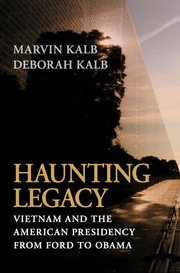Q&A with Matt Bai of The New York Times
 Wednesday, May 30, 2012 at 8:34PM
Wednesday, May 30, 2012 at 8:34PM Matt Bai is chief political correspondent for The New York Times Magazine.
Q: This presidential election is the first since 1944 in which neither major-party candidate has military experience. Do you think this will become a more frequent occurrence, and, if so, what does that mean for American politics?
A: It's funny you ask, because I though about this a lot recently when I was spending some time with Bob Kerrey in Nebraska for the magazine. I do think this is a turning point, and that from here on out more of our candidates will probably lack military experience, and that's a simple function of generational change. If you're 50 today, then you're too young to have ever been drafted, and so naturally politicians of that age are going to be less likely to have served.
Do I think it has an effect on our political culture? Yes, personally, I do. I think our politics throughout the 20th century was more civil and more readily met the challenges of the nation in part because so many of our leaders had that sense of perspective that comes from mortal danger. Like Kerrey and the other Vietnam vets who served, they understood that there were worse things in life than losing an election over something you believed. And I really think we're losing that sense of perspective in our politics. At one point during our recent travels, I suggested to Kerrey that something he had said would anger his own party's leaders, and he looked surprised. He told me, "So we have an argument, that's all. Nobody's going to DIE."
He's right, of course, and I think a lot of the problem with out current political culture is that too many politicians act like losing their seats is the same thing as dying. I'm not saying I want to reinstitute the draft and send my son off to war when he's 18 so we can incubate better leaders. I'm just saying that there probably was a positive impact from having so many leaders who had also fought for the country.
Q: During the 2008 campaign, you wrote about the huge impact Vietnam had on GOP nominee John McCain, who was a POW in Hanoi. How did McCain's identification with the Vietnam War help or hurt him in the election?
A: It's a good question, and I guess I don't really think it had much impact one way or the other, mostly because of the strategy he pursued as a nominee. The real benefit McCain got from his status as a war hero, for much of his career, is that it established him as a natural, cultural leader for conservatives, and that enabled him to take some contrary positions without alienating large portions of his base. Thus he could position himself as a kind of reformer with independent voters without having most conservatives question his core values, as they would some other candidate who hadn't been a legendary prisoner in Saigon.
For a long time, this made McCain a singular and really fascinating politician, and I think he had the potential to really affect our political dynamic. As a nominee, though, he banked hard right and really tried to win over those conservatives in a more traditional fashion, with social and economic issues. And so his image as a war hero and patriot really didn't come into play as much as it might have if he had continued to hold himself out as a more unorthodox kind of reformer. Plus the economic issues that emerged late in the campaign more or less drowned out everything else.
Q: President Obama is trying to appeal to veterans, traditionally seen as a more conservative voting bloc, this election year. Do you think he will be successful in winning a larger percentage of veterans' votes than other recent Democratic nominees?
A: No, my guess is not in any measurable way, but this is only because most veterans are older. This president has always had a sharp generational divide in his support, which I've written about a lot, and which probably stems from a bunch of causes. Generally speaking, the older you are in America, the less likely you are to support President Obama, and so I think that makes it hard for him to do substantially better among veterans than other Democrats have. But I could be wrong about that.
Q: How much of an impact do you think the Swift Boat ads against Democratic presidential nominee John Kerry had on the outcome of the 2004 presidential election?
A: Those ads had some impact, but this had less to do with the war than it did with questions about his character. And the Bush folks were very sharp about exploiting this, even though they didn’t make that ad. They very skillfully portrayed Kerry as a guy who couldn't be trusted to do the right thing at a critical moment, who would act according to his own image and ambition first. And so this idea that he had taken credit for things he didn't deserve and then protested the war when it was politically expedient really played into that. Everything they did to Kerry in that campaign underscored that one central theme. It was nasty and it was brilliant, and even then Bush barely won.
Q: Will foreign-policy issues play a major role in this year's election, or will economic issues be completely dominant?
A: That's impossible to answer, because none of us knows what crises lay in our path between now and November. There are so many unstable places in the world, and so many potential terrorism threats, and any one of those could instantly become a critical issue in the campaign. Clearly, if you held the election today, though, it would be much more about economic issues.
Interview with Deborah Kalb, co-author of Haunting Legacy.



Reader Comments